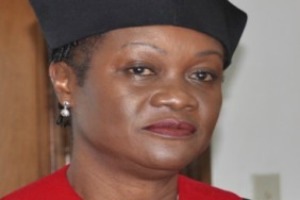Editorial: Government’s inconsistency over rail operatorship is troubling

The Government of Liberia’s decision to reverse the Inter-Ministerial Concessions Committee’s (IMCC) communication reaffirming ArcelorMittal Liberia (AML) as the user-operator of the Yekepa-Buchanan railway is not only troubling but also raises serious questions about the country’s commitment to honoring contracts and protecting legitimate investment.
The IMCC’s original decision was grounded in logic, legality, and Liberia’s long-term development interests. Over seven years of negotiations between the Government of Liberia and AML led to the formulation of Rail System Operating Principles (RSOP), a comprehensive framework embedded in the Third Amendment of AML’s Mineral Development Agreement (MDA).
This framework provides multi-user access to the rail, regulated by the Government, while maintaining AML’s role as user-operator under a no-profit, no-loss model. It also ensures oversight through a Joint Management Committee, grants the Government audit and regulatory authority, including power to revoke AML’s role for non-performance.
The structure aligns squarely with the intent of Executive Order No. 136, which seeks to establish a multi-user rail system in the country. Crucially, the Executive Order itself recognizes the sanctity of existing commitments, like AML’s MDA, and does not seek to override them.
The Yekepa–Buchanan rail line is not just infrastructure; it is the backbone of Liberia’s iron ore industry in which ArcelorMittal Liberia has invested over $800 million into rehabilitating and expanding the rail corridor.
The company’s commitment to Liberia spans nearly two decades and has resulted in employment for over 7,000 Liberians, coupled with substantial community development initiatives, and steady contributions to government revenue.
But we think to now walk back to a decision that recognized AML’s historic and contractual role as user-operator in favor of an unproven foreign company, Ivanhoe Atlantic, is a grave mistake that sends the wrong signal to both existing and potential investors. It gives Ivanhoe an unfair upper hand and portrays Liberia as a country where agreements can be cast aside to satisfy political expediency or foreign pressure.
Even neighboring Guinea, in its agreement with SMFG, recognizes that access through Liberia is temporary and uncertain. Yet Liberia seems willing to subordinate its national interest and investor credibility to accommodate a neighboring country’s mining agenda.
We consider this reversal as more than a policy misstep, as it also undermines the rule of law and erodes investors’ confidence. The Constitution of Liberia mandates that the state honors contracts, and the AML MDA remains a legally binding agreement. If the Government of Liberia genuinely believes it can no longer accept AML as the rail operator, then the only lawful and honorable path is to amend the agreement through mutual consent, rather than unilateral revocation.
ArcelorMittal’s role as a user-operator does not preclude other companies from using the rail. In fact, the RSOP ensures fair, cost-based access for all, with strong government oversight. This is the very definition of a multi-user model.
Instead of penalizing AML, we believe strongly that Liberia should be celebrating and strengthening its partnership with a company that has demonstrated long-term commitment to the country’s growth. Prioritizing a foreign newcomer over a proven investor will not only jeopardize current operations, but could freeze future investment altogether.
We emphasize that if this country is to build a prosperous and respected investment climate, we must start by honoring our own agreements. The government should reconsider its reversal and stand by the IMCC’s informed and nationally beneficial decision to maintain AML’s user-operatorship under the legal, tested, and transparent framework of the Third Amendment and the RSOP.
Liberia must choose principle over politics, for the future of our economy and its credibility as a nation, depends on it.



















